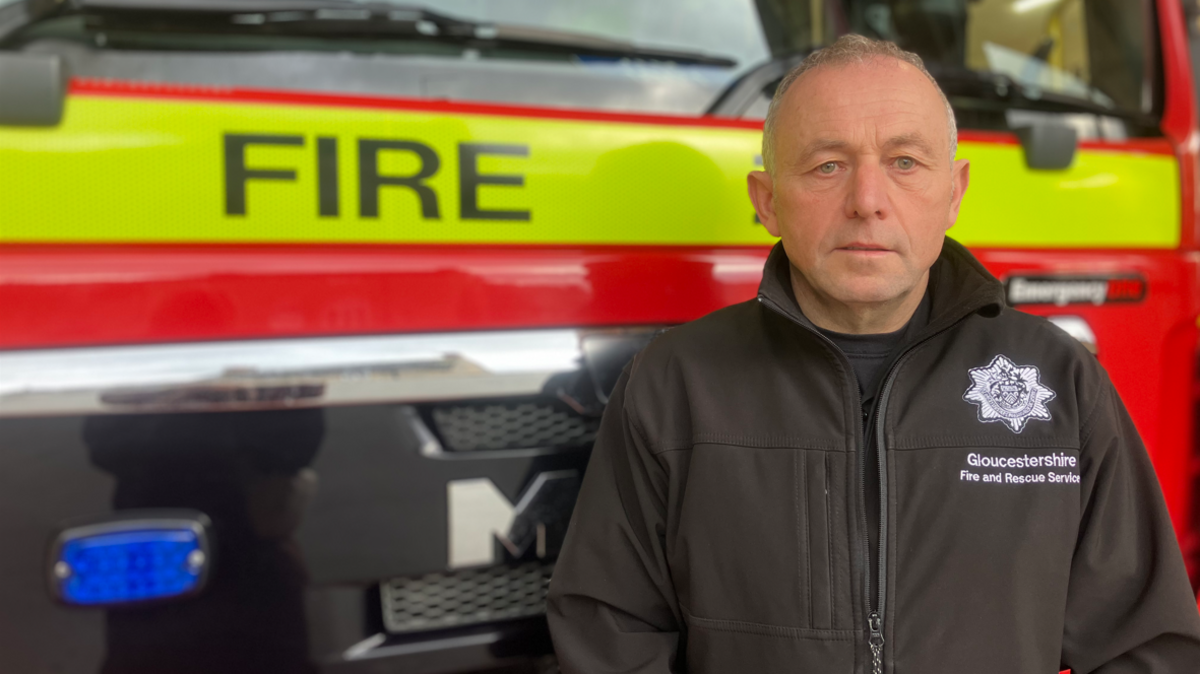Firefighters using heated virtual reality kits to train
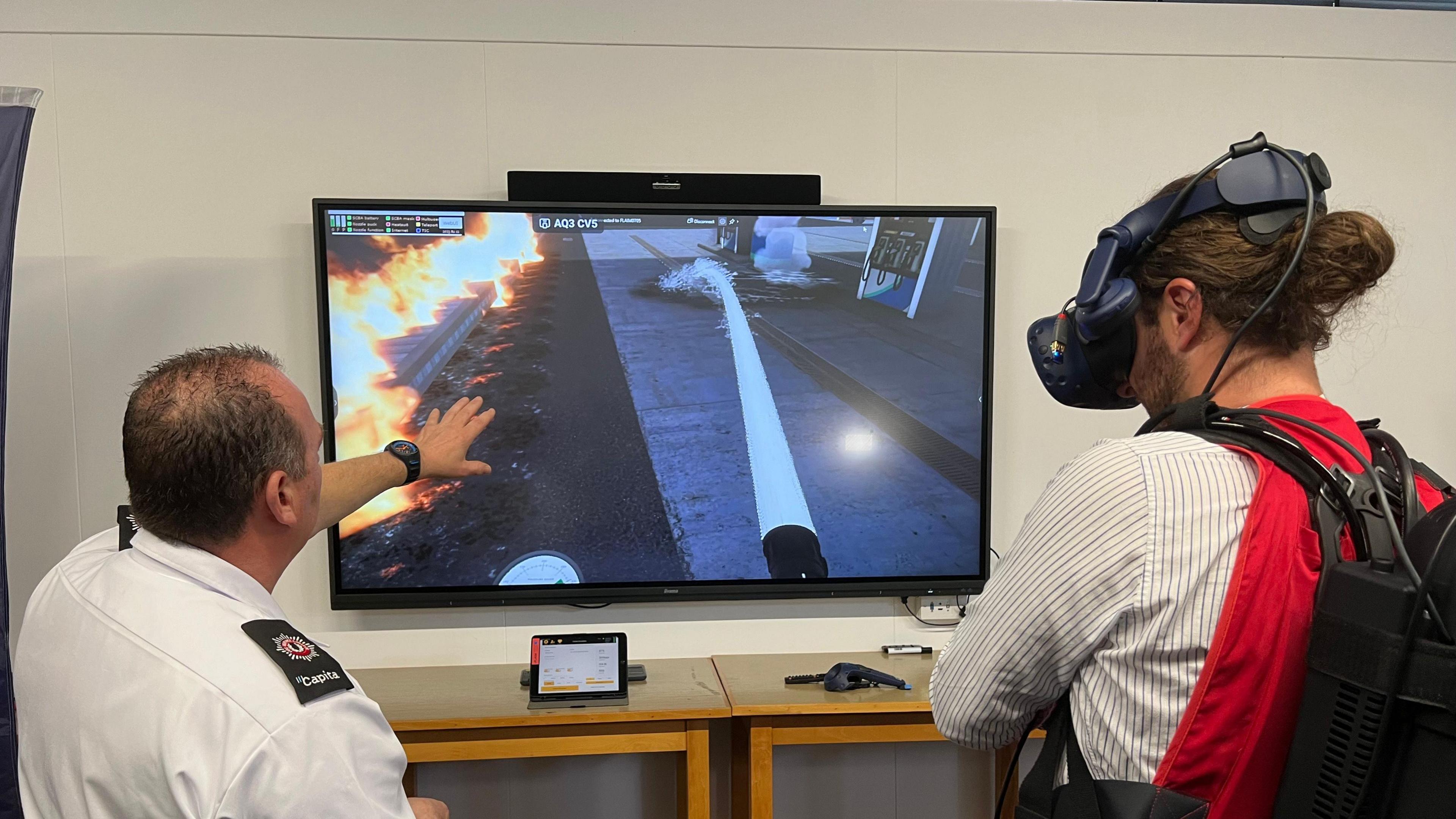
The Fire College is using virtual reality headsets and haptic vests which generate heat
- Published
Firefighters are using virtual reality kit to train new recruits for real-life blazes.
Gloucestershire's Fire Service College in Moreton-in-Marsh has introduced photorealistic software and haptic vests, which generate heat, in a new training programme.
It is hoped the technology will save time and money, while cutting down the amount of repetitions performed in real smoke.
Incident command instructor Paul Speight said: "I believe in a blended approach - we bring the virtual world and the real world together, so we get the best of both worlds."
College director Clair Mowbray said the students find it "exciting and different".
"We're not saying that this is the only way that they will train. It's definitely about blending technology like this with that practical training," she said.
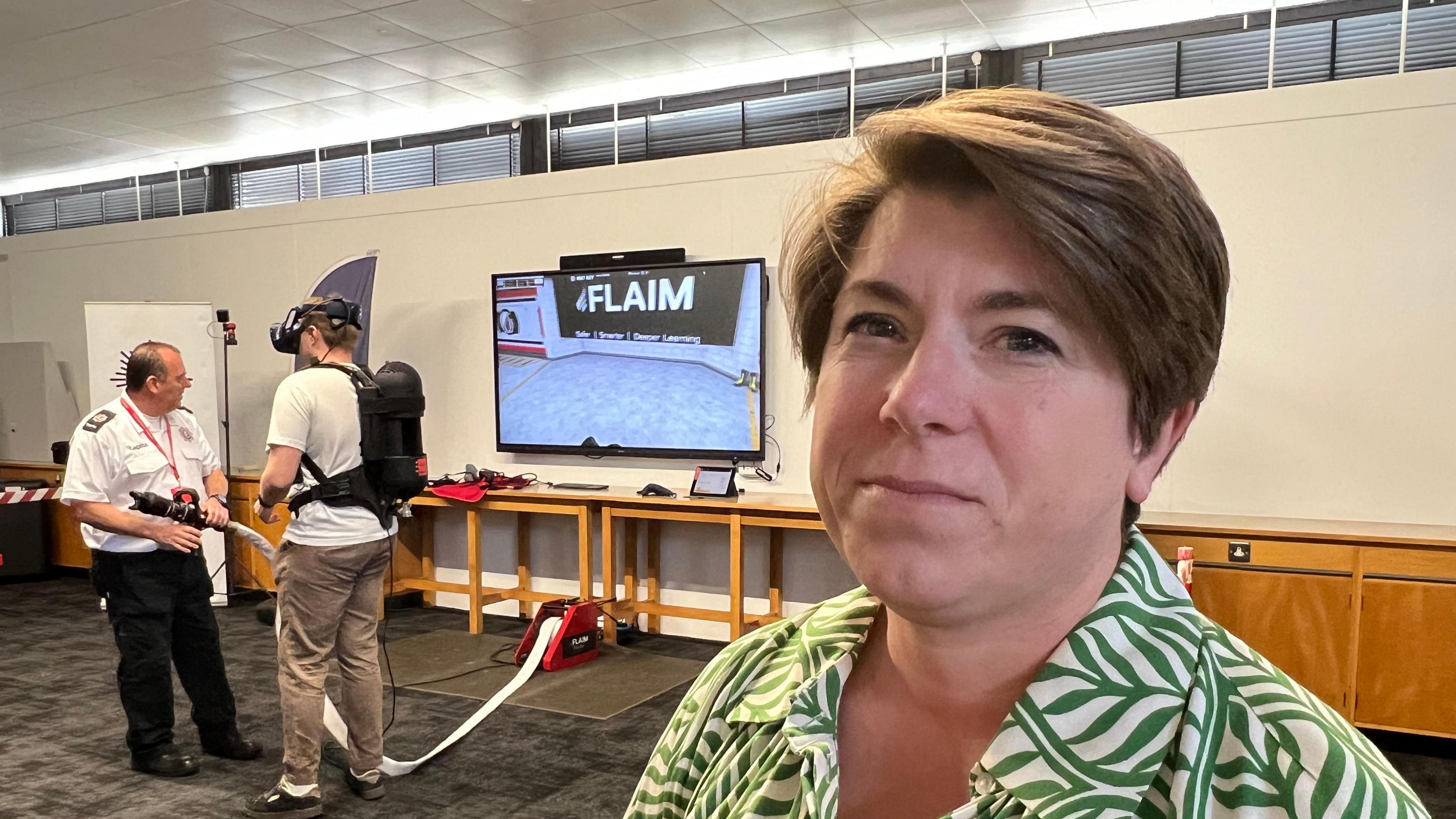
Clair Mowbray said the college is using a "blended approach" to learning
"It transforms you from where you are into somewhere different," added Mr Speight, who has worked in the fire service for more than 33 years.
He said the new training approach can help firefighters be proficient.
"We need to embrace change," he said.
"Some people think that [the technology] doesn't work, they need to get out into the ground and experience it for real."
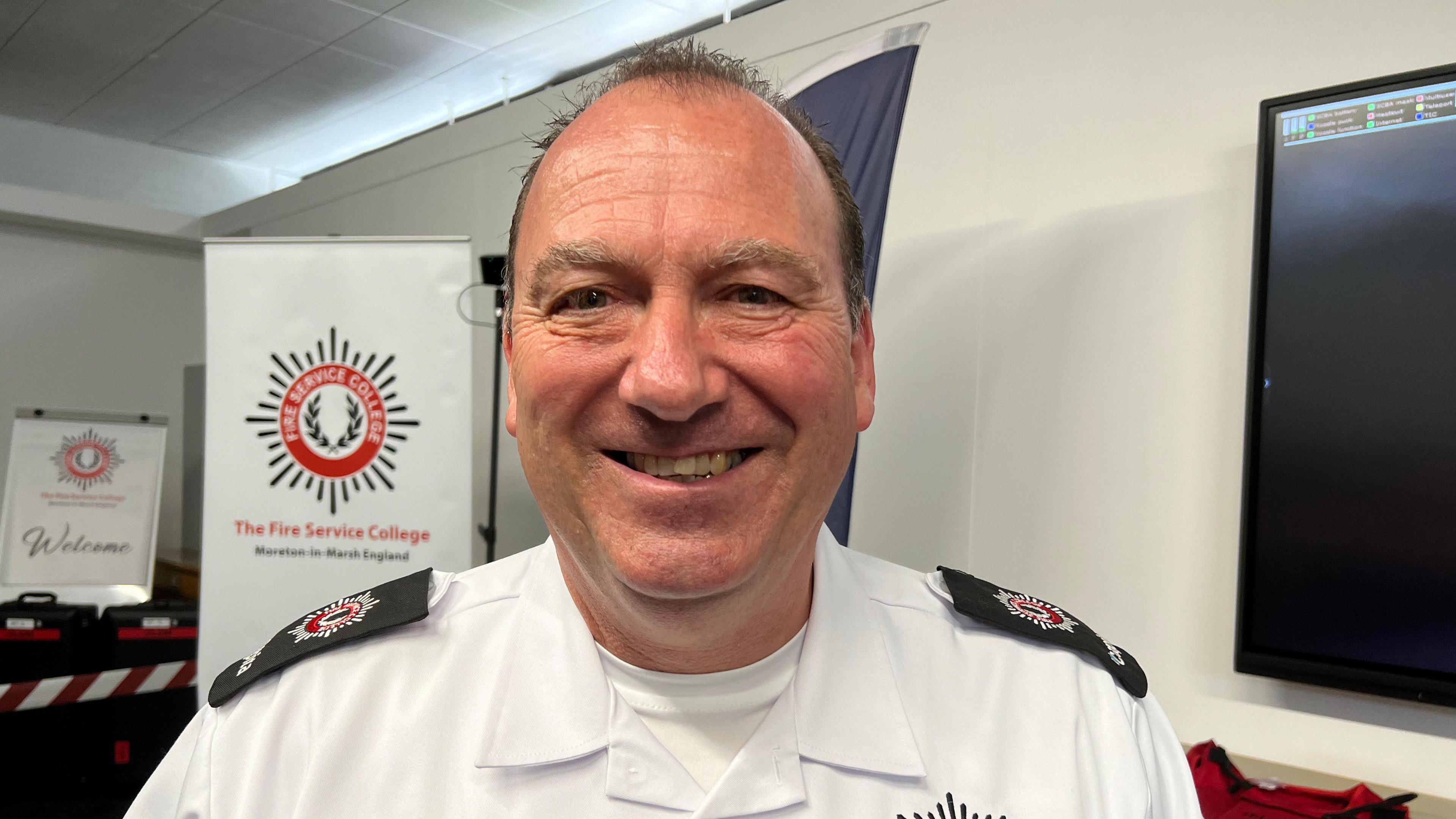
Paul Speight said the virtual reality technology will make firefighters more 'proficient'
The college partnered with software company RiVR, which created software to run on the virtual reality headsets, and tech company HTC VIVE, which developed the headsets.
Alex Harvey, co-founder and CEO of RiVR, said the photorealistic investigation software has been developed over four years and uses photogrammetry.
"It is the process of taking thousands of photos of any real world object or person - that makes a 3D model that's indistinguishable from the real world and looks great inside virtual reality," explained Mr Harvey.
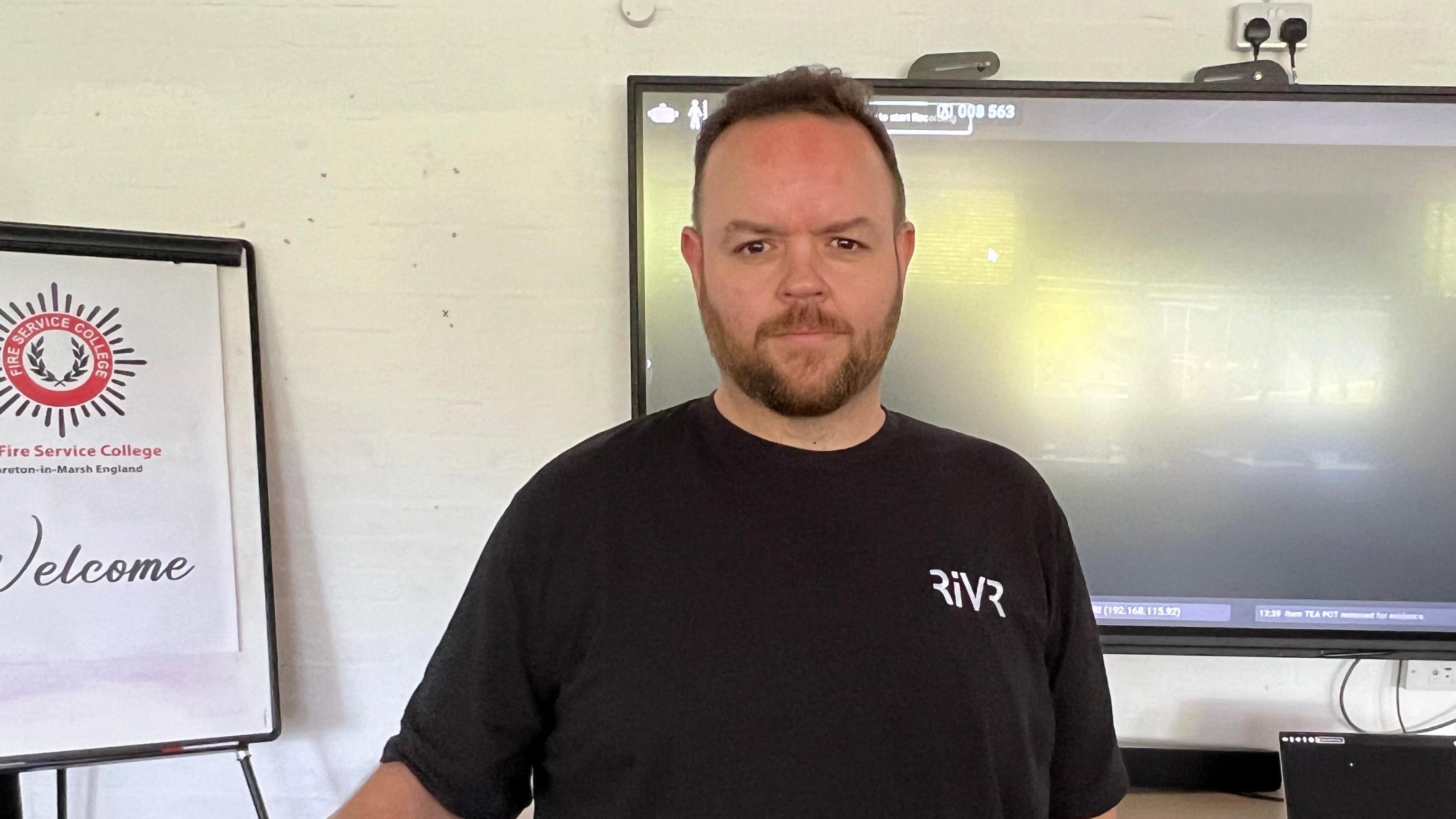
RiVR Ceo Alex Harvey said the new technology will help keep new recruits train safely
He said this new technology will mean new recruits will need to spend less time training in real fire situations.
"They are going through the virtual environments, so they're now not breathing in that carcinogenic smoke and poisonous toxins into their lungs," he said.
"You can do a lot of training inside virtual reality, but you're still going to have to do that real thing as well. We're just cutting down the amount of repetitions done in real smoke."
Follow BBC Gloucestershire on Facebook, external, X, external and Instagram, external. Send your story ideas to us on email or via WhatsApp on 0800 313 4630.
- Published22 October 2023
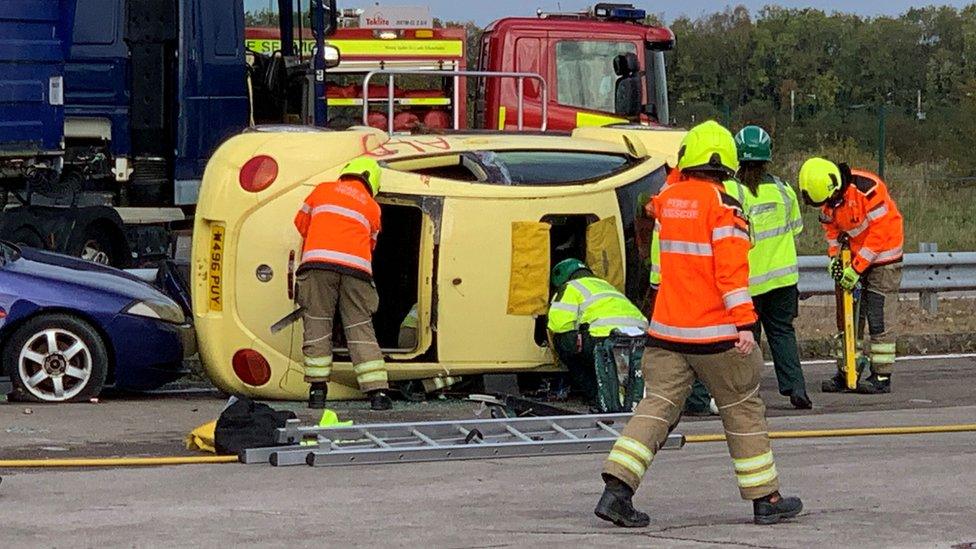
- Published30 April 2024
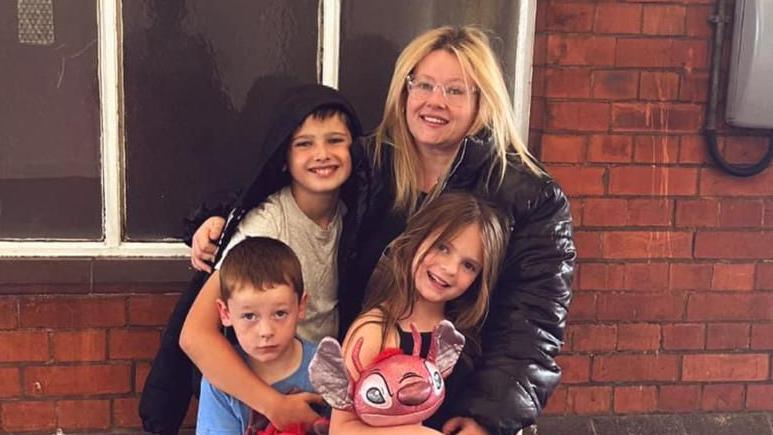
- Published11 January 2024
